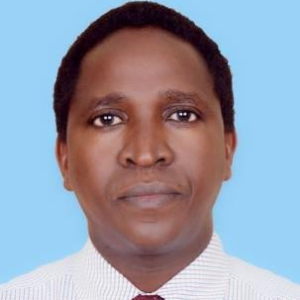Title : Exploring the healthcare of the older population in rural Kenya: A qualitative study
Abstract:
Improvements in health, diet, medicines, and resources, have resulted in more people living longer, and globally the older generation is increasing year on year. For international governments, this poses a great challenge, in providing adequate economic, health, and social well-being interventions for older people. Sub-Saharan Africa is no different, as one of the poorest regions, it now faces a challenge in the provision of social safety infrastructures and policies, to support the healthcare for the aging population. These challenges are more pronounced in rural settings where health facilities for older people lack the geriatric trained healthcare workers and other basic requirements such as food, shelter, and fuel are limited. At the same time, there are culture changes, younger people often migrate to the city to seek employment, so there is reduced extended family support available for older living in rural locations. Robust ‘real world’ evidence is limited, both the experiences of older people and evidence that examines whether the current social support and health care policies provided by the government meet the needs of the elderly population. This unique study based in Kenya, provided a platform to hear the voice of older people living in rural communities. The study explored older people’s experiences, developed an understanding of their life, social situation, and health, and exposed the challenges they faced and their preferences for care and support as they progressed in age. Focused on Kwale County, a rural Kenyan region, the research adopted a qualitative design, using in-depth interviews to capture the lived experiences of older people (n=20), their caregivers (n=20), and local and government stakeholders (n=20). The research examined the type of healthcare the older people received from their healthcare facilities, and the assistance they received concerning their activities of daily living, alongside the policies and government support available. A purposive sampling method was used to identify older people by the local authorities, and then snowball sampling using knowledge from community leaders identified additional older people and their caregivers in the community. The findings exposed the abject poverty of older people in rural areas, lacking shelter, food, and clean water, poor health, and basic needs that people felt should be provided by the government. Some older people felt unsafe, their living environment was insecure and unfriendly, leaving them open to physical abuse. Older people were dissatisfied and unhappy. They wanted to be cared for by health professionals who understood their needs and were given priority in the healthcare facilities. Government policies and in particular the provision of financial and social support requires urgent review; many older people entitled to support don’t receive it, their health and social needs remain unmet, and their existence in rural communities is poor.
Keywords: Aged Population, Older Adults, Lived Experience, Policies and Rural Areas.
Audience Take Away Notes
- Older adults have unique needs that require healthcare workers to listen to them and provide culturally appropriate care.
- In developing countries, there is a shortage of trained geriatric healthcare workers such as doctors and nurses. This is problematic as the population is aging rapidly.
- It is necessary to establish healthcare policies that facilitate access to healthcare facilities, medications, and in-home care for older people.
- The rural healthcare facilities (Government hospitals level 1 and 2) are not well equipped (poor staffing, lack geriatric specialists, and have no medications) to support the specific healthcare needs of older people.



